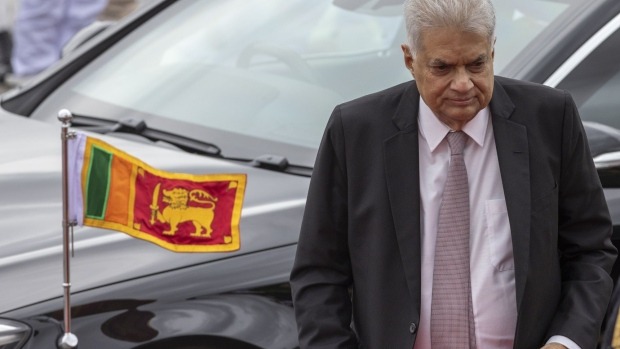Colombo August 30 2022: Sri Lanka raised tax rates and announced reforms as it seeks to pull the bankrupt nation out of its economic tailspin amid bailout talks with the International Monetary Fund.
“The island nation will increase value-added tax to 15% from the current 12% starting Sept. 1,” President Ranil Wickremesinghe said in his interim budget speech Tuesday. “The amended budget will help in economic recovery.”
Wickremesinghe’s administration is looking to reach an agreement with a visiting IMF team, which concludes its visit on Wednesday, to ease the worst economic crisis since independence.
“The talks with IMF are successful and in last stages,” Wickremesinghe said. He added that the nation plans to formulate a new public finance management law and set up nation debt management agency to improve the nation’s fiscal health.
The nation’s stocks, dollar bonds gained as investors cheered the interim budget. The CSE All Share index rose 1.5%, snapping a losing streak, while its currency slipped 0.5% to 363.95 to the dollar. Sri Lanka’s 7.55% 2030 dollar bond was indicated 0.9 cents higher to trade at 29.9 cents on the dollar
Sri Lanka also increased payout to the poor and announced farm debt write-off to aid the vulnerable sections that were hit hard due to the ongoing crisis.
Dwindling foreign exchange reserves, crippling shortages of essential items and Asia’s fastest inflation has hurt the $81 billion economy. The nation’s forex stockpile stood at $1.82 billion in July, while its headline inflation surged to a record 60.8% in July.
Sri Lanka’s currency has lost about 45% over the past year, while its stocks declined about 27% due to the nation’s deteriorating finances and political crisis that led to the formation of a new government.
Earlier this year, the island nation fell into default for the first time in its history after after it missed grace period payments on bonds worth $78 million. Sri Lanka has about $12.6 billion in outstanding bonds owed to global funds; it owes roughly an equivalent amount to bilateral creditors and multilateral lenders.
Besides IMF, Sri Lanka is also tapping neighboring countries, including India and Japan, apart from China for bridge financing.










